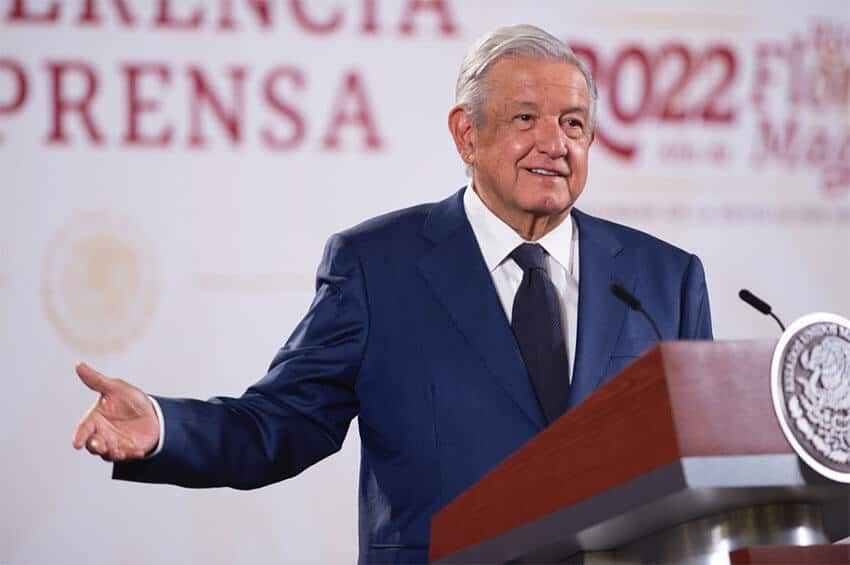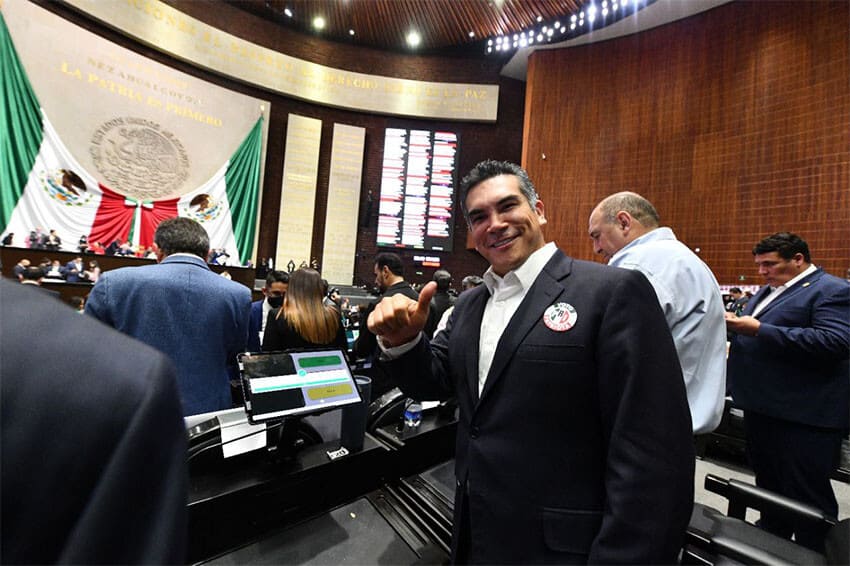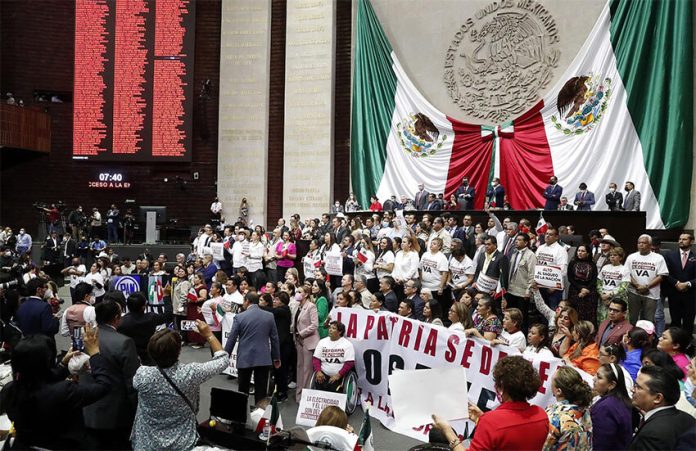A proposed electricity reform that would have guaranteed the state owned Federal Electricity Commission (CFE) over half the market failed to pass the lower house of Congress on Sunday, prompting President López Obrador to describe opposition lawmakers as traitors.
The ruling Morena party and its allies fell short of the two-thirds majority needed to approve the constitutional bill, which would have given the CFE 54% of the power market and nationalized future lithium exploration, among other measures.
A total of 275 deputies voted in favor of the proposed reform while 223 voted against it. Only two of 500 deputies were absent.
Marked by acrimony between the opposing parties, the Easter Sunday debate and vote on the constitutional bill was closely watched in Mexico and beyond given that its approval would have drastically altered rules governing participation in the country’s energy sector. Opposition parties and other critics argued that the reform would adversely affect current and future investment, damage the economy and harm the environment given that the CFE is heavily dependent on fossil fuels.
It was the first time that a constitutional reform put forward by a Mexican president had been rejected.

López Obrador – a staunch energy nationalist determined to “rescue” the CFE and state oil company Pemex and roll back the 2013 reform that opened up the energy sector to private and foreign companies – said Monday that opposition lawmakers committed “an act of treason” in not supporting the bill. They defended the interests of unscrupulous foreign companies rather than those of the Mexican people and nation, he asserted.
In the Chamber of Deputies on Sunday, Morena’s leader in the lower house called on opposition lawmakers to support the proposed reform, which López Obrador sent to Congress in October.
“Think about whether you want to subordinate yourself to money and foreign companies as the bad lawmakers, bad officials and bad Mexicans did in 2013,” Ignacio Mier said, referring to approval of the previous government’s energy reform, one of numerous structural reforms spearheaded by former president Enrique Peña Nieto and passed by Congress.
“Don’t mortgage your honor because there won’t be money to recover it. Honor is a matter of dignity and moral quality,” he said.
His plea fell on deaf ears, with the National Action Party (PAN), Institutional Revolutionary Party (PRI), Democratic Revolution Party (PRD) and Citizens Movement (MC) party all rejecting the constitutional bill.
“In the context of this reform, many people bet that the ‘Va por México’ coalition was going to dissolve, but today we tell you that the women and men of the PAN, PRI and PRD are more united than ever,” said Jorge Romero, leader of the PAN in the lower house.

Deputy Alejandro Moreno, the PRI’s national president, declared that the rejection of the bill would be Morena’s “largest and most monumental defeat” in the Congress, and warned that the opposition would band together to vote down other constitutional initiatives if the ruling party maintained its “arrogant attitude.”
Ildefonso Guajardo, a PRI deputy and former economy minister, warned that the proposed reform would violate the North American free trade pact – the United States-Mexico-Canada Agreement (USMCA) – an argument already made by many other critics, including the U.S. government.
As debate was taking place in the Chamber of Deputies, López Obrador took to social media to declare that “whatever happens we’re already shielded against treason.”
The government’s already approved Electricity Industry Law, which gives power generated by CFE priority on the national grid over that produced by private and renewable energy companies, was ruled constitutional by the Supreme Court earlier this month, while a reform to the mining law – which requires only a simple majority to pass Congress – gives the president the ability to nationalize lithium resources. The proposed mining law reform could face a vote as soon as Monday.
Speaking at his regular news conference on Monday morning, López Obrador said that opposition lawmakers who blocked his bill had become “clear defenders of foreign companies that are dedicated to getting rich and stealing.”
“To say it clearly, these deputies supported the looters,” he said. “… That’s the mentality that prevailed yesterday,” López Obrador said.
“… We’ve been defending [Mexico’s] oil and the electricity industry for decades because that’s what the foreigners covet the most – not just companies [but] those behind [them]; it’s a chain of command, it’s the investment funds that dominate in the world. It’s the investment funds, the companies and then the corrupt oligarchic interests of each country,” he said.
López Obrador claimed that the “traitors” didn’t present any valid arguments against his proposed reform, singling out Guajardo’s claim that the USMCA would be violated as “completely false.”
The president had harbored hopes that the PRI would support his bill, but the once omnipotent party – whose early president Lázaro Cárdenas nationalized Mexico’s oil industry – ultimately sided with the PAN, which is currently the main opposition party in Congress.
“It was shameful to see the PRI as the co-conspirator of the PAN. … [It’s] regrettable, just imagine – the [PRI is the] party that emerged with the revolution,” López Obrador said.
“ … We saw this coming. Of course it could have been avoided if we acted like they did in 2013 [when] they bought votes, but we’re not the same. In 2013, … [the PRI] obtained an absolute majority, there wasn’t opposition because they handed out money, that’s why the so-called energy reform [was approved], the reform we’re confronting,” he said before signaling his undiminished determination to overhaul the energy sector to favor the state.
“… This isn’t over yet,” the president insisted. “This is just starting.”
With reports from Reforma, Milenio and El Financiero
